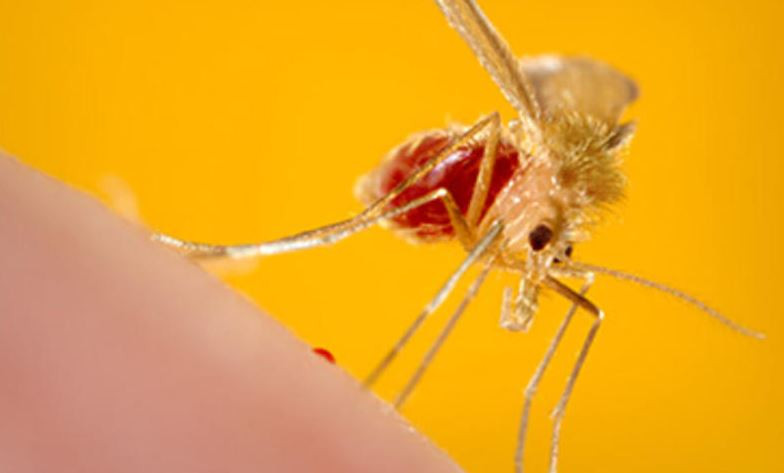Psoriasis and chronic diseases flared in post-October 7 Israel - The Jerusalem Post
The Israel Psoriasis Association (IPA) in Tel Aviv has just conducted a survey of 360 patients with the disease that showed most patients have suffered an exacerbation of their condition due to stress and anxiety. Some of them need not only to see their dermatologist but 25% sought mental and emotional treatment.
The survey found that 77% of psoriasis patients reported that the war worsened their symptoms; 8% of patients maintained that the ongoing war had affected the quality of the treatment they are receiving for psoriasis. Fully 67% of patients said they suffer from diseases associated with psoriasis, including arthritis, high blood pressure, diabetes, depression, and serious weight gain. Two-thirds reported they faced a long queue to get an appointment with their dermatologist.
The disorder causes skin cells to multiply too quickly, resulting in thick, scaly patches. Common symptoms include red, raised patches covered with silvery scales, dry and cracked skin, and itchy or sore areas. It usually appears at a young age and is equally common between women and men. Most people suffer from mild to moderate disease, but a quarter to a third of patients suffer from moderate to severe disease, with extensive skin lesions and a significant impact on quality of life.
It often causes joint and back pain due to the chronic inflammation, permanently disfiguring in severe cases, and disabling if left untreated or if treated inadequately.
Some patients will experience the symptoms continuously, while others will experience periodic flare-ups of the disease. The risk of developing the disease stems from a combination of genetic predisposition and environmental factors, with environmental factors that aggravate psoriasis including: medications, infectious diseases, mechanical damage to the skin (scars, cuts), lack of sun exposure, and psychological stress.
Noam Goldstein, 25, has been dealing with psoriasis since the age of eight, and has experienced a significant worsening of the symptoms of the disease since the outbreak of the war.
“I developed psoriasis soon after my parents divorced; it was probably one of the reasons for the outbreak of the disease. Over the years, I have learned that my mental state also greatly affects the condition of my skin, and the connection between body and mind has become self-evident to me,” he recalled.
He added that the disease greatly affects his quality of life, physically, emotionally, and socially.
“During periods of worsening symptoms, I felt severe itching and a sense of shame. I avoided wearing short, revealing clothes and black clothes so that the scales accompanying the skin lesions would not be visible. I felt a constant need to hide my skin. Many times, I received offensive reactions, stemming from ignorance and lack of awareness of the disease, and this increased my need to explain what psoriasis is, that it is not infectious, to raise awareness of it, and to reduce the feeling of shame and concealment.”
As a medic in the Home Front Command, Goldstein was called up to reserve service on October 7.
“I was exposed to very difficult scenes of wounded people and human suffering, scenes that accompany me to this day. The mental struggle with these difficult experiences caused a worsening of the disease that had never happened to me before, and it manifested itself in the spread of lesions on many parts of my body, incessant itching, and sometimes even bleeding. In addition, I had to deal with long and prolonged queues of several months for a dermatologist specializing in the disease, a problem that was greatly aggravated by the ongoing war.”
Fortunately, he received support from the IPA, which encouraged him and served as a supportive community, without which coping would have been much more difficult, he said. He has participated every year summer camp for children at the Dead Sea, as a patient and for years as a camp counselor to give the youngsters who have the disease vital support and guidance that helps them heal physically, mentally, and socially, and feel like they belong to a group with the same challenges and difficulties. Such an event was held after October 7, 2023, and another will be conducted this year.
IPA director-general Yona Katzir, whose psoriasis began when she joined the IDF, struggled between skin creams, phototherapy (exposure to special lights three times a week for several months), or long visits to the Dead Sea, where there is plenty of sun but damaging ultraviolet light is minimal.
Psoriasis treatments aim to stop skin cells from growing so quickly and to remove scales. More recently, a variety of injected and oral biological drugs have been developed for more serious cases and included in the health funds’ drug basket, but they all lose their effectiveness after a few years, forcing patients to try something else.
She told The Jerusalem Post that some 60 million people around the world have psoriasis. Her organization is a member of the International Federation of Psoriatic Disease Associations, founded in 1971, and now has over 60 national member organizations. It organizes an annual World Psoriasis Day on October 29 for the global community to come together and act, raise awareness, and advocate for better care.
IPA president Dr. Hagit Metz, who works as director of the psoriasis and phototherapy service at the Tel Aviv Sourasky Medical Center, commented that the survey’s findings are not surprising.
“It is known that psoriasis is a chronic skin disease with outbreaks and remissions, with mental stress and ongoing war being among the factors associated with this. The resulting emotions can also lead to depression, emotional eating, obesity, neglect, and a reluctance to take care of ourselves. The harm to the quality of care can be explained by ‘emotional fatigue,’ lack of caring, or anxiety.
“The patient is reluctant to see a doctor, even if his condition has worsened. There is no doubt that the uncertainty during the war period can also cause delayed trauma and worsening of symptoms that can appear months later, so that in the future we can face another wave of worsening of psoriasis and its associated diseases.”












